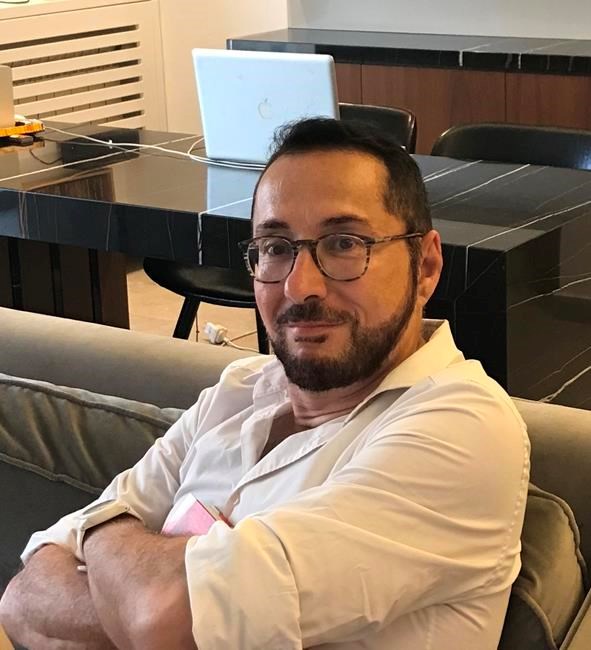A Canadian artist from Montreal heard nothing but thought his apartment in Beirut had been hit by an earthquake as a massive explosion tore through the city's port district Tuesday.
"The whole building shook, paintings fell, things broke, chairs moved. Like two seconds later, I heard the blast," said Sami Basbous in a WhatsApp interview.
Basbous, who is visiting Lebanon said he lives about five kilometres from the site of the blast in an apartment with an unobstructed view of the port.
"It was like the air was sucked out of the city and was sucked out of people. It was sucked out of me," he said.
Basbous had been watching a plume of smoke billowing from the port when the blast hit. He described a "strange, red, ochre colour mushroom cloud" coming from the area of the fire within seconds of the explosion.
"The whole city was engulfed by the smoke. It was terrifying. It almost took your breath away. And it threw me off. It was absolutely devastating."
Rawane Al Zahed also lives about five kilometres from the blast site and said she ran through her home to check on her family after she heard explosions and felt the ground shake.
Al Zahed, 24, said she felt two explosions a few seconds apart. The first felt like an earthquake, while the second sent shock waves through her family's fifth-floor apartment.
"I was super afraid," Al Zahed said. "I didn't want to die. I was screaming, 'I don't want to die now.' "
Al Zahed, who has filed paperwork to join her Canadian husband in Vancouver, said the second explosion left a wood and iron door cracked, and shattered the television screen in her house.
The explosion has killed at least 135 people, among them a long-time Montreal resident identified by a Montreal city councillor.
Thousands more are injured, and the federal government said a member of the Canadian Armed Forces is among those hurt, although the injuries are not considered life threatening.
The Lebanese government said it had put an unspecified number of port officials under house arrest pending an explanation about how 2,750 tonnes of ammonium nitrate came to be stored at the port for years.
The scale of the damage, from the epicentre of the explosion to the windows blown out kilometres away, resembles other blasts involving the chemical compound commonly used as an agricultural fertilizer, experts said.
Basbous, who came to Canada from Beirut in 1981 and returned for a visit, only to be stranded there by the COVID-19 pandemic, said the blast was so powerful it took his breath away.
"Never have I ever experienced something like this, and I hope I will never experience it again," he said.
The blast has compounded the various problems already facing the people of Lebanon, said Basbous.
"And I have love for this beautiful country that sadly is terribly complicated."
Since the blast on Tuesday, he said he has been in constant contact with friends and family.
He has been calling various non-profit organizations, food banks and shelters to offer his services and mobilize resources for them, he added.
Al Zahed said she called her husband. He tried to lighten the mood with a couple jokes, but she said she was far too panicked to sleep.
"I wake up, I tweet. I wake up, I open Facebook. I want to see what's happening," she said. "All I can think of (is) how I ran. All I can remember (is) when I ran."
The blast has been described as the most powerful explosion ever seen in the city, which was divided by the 1975-1990 civil war and has endured conflicts with
Lebanon was experiencing a severe economic crisis that has ignited mass protests in recent months. Its health system is confronting a surge of COVID-19, and there are concerns the virus could spread further as people flood into hospitals.
Al Zahed said she's still trying to come to terms with what happened, noting that because of her age, she was spared from much of Lebanon's recent tragedy.
"I'm 24 years old. I didn't live through any other big Lebanese wars," Al Zahed said. "I was too young for the one in 2006, and I didn't pass through any trauma before like this one. It was really scary."
— With files from The Associated Press.
This report by The Canadian Press was first published Aug. 5, 2020.
Hina Alam, The Canadian Press



